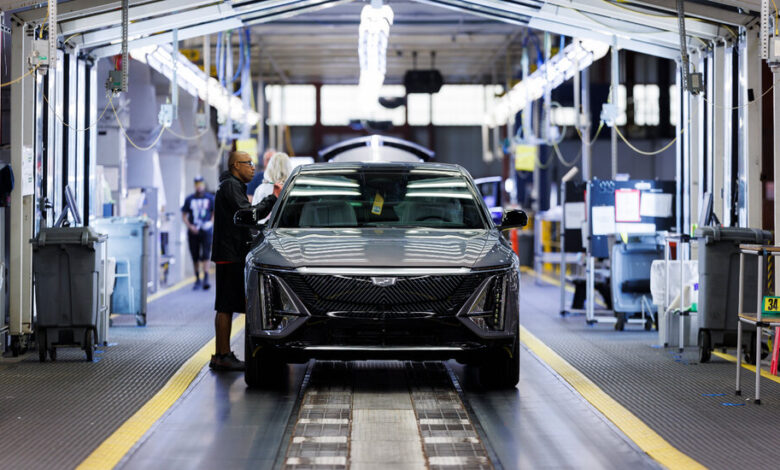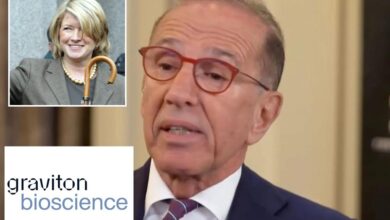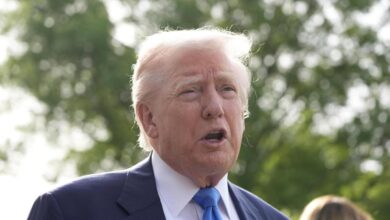Auto Sales Surged in Anticipation of Trump’s Tariffs

The auto industry experienced an unprecedented surge in sales during March as consumers rushed to make purchases before President Trump’s proposed auto tariffs take effect, leading to potentially significant price increases. Hyundai Motor North America’s CEO, Randy Parker, noted that this past weekend marked a remarkable boost in sales, with a 13% increase compared to the previous year. Similarly, Ford Motor reported a 19% rise in March dealership sales, although overall quarterly sales slightly declined due to reduced fleet customer purchases.
General Motors also saw a 17% increase in first-quarter sales, totaling 693,000 vehicles. The looming threat of 25% tariffs on imported vehicles, set to begin on Thursday, has prompted a surge in sales of electric vehicles and hybrids, as carmakers anticipate the need to raise prices to offset the levies.
President Trump’s tariff announcement has spurred a shift towards electric and hybrid vehicles, with GM reporting a nearly doubled sales figure for battery-powered cars. Toyota also noted a 44% increase in hybrid and electric vehicle sales, while Ford reported a 33% rise in hybrid sales and a 12% increase in electric vehicle sales.
Hyundai reported a significant 68% increase in hybrid sales and a 3% rise in pure electric vehicle sales, while BMW saw a 26% increase in electric vehicle sales in the US. The uncertainty surrounding tariffs has left carmakers hesitant to predict price impacts, urging consumers to make purchases sooner rather than later.
As the auto industry braces for potential price hikes due to tariffs, the market is experiencing a shift towards eco-friendly vehicles. With sales of electric and hybrid cars on the rise, manufacturers are adapting to meet changing consumer demands. Hyundai and BMW have seen notable increases in electric vehicle sales, signaling a growing trend towards sustainable transportation options.
Despite the uncertainty surrounding tariffs, the auto industry remains resilient, urging consumers to take advantage of current deals before potential price increases take effect. The shift towards electric and hybrid vehicles reflects a broader movement towards sustainability and innovation in the automotive sector.





